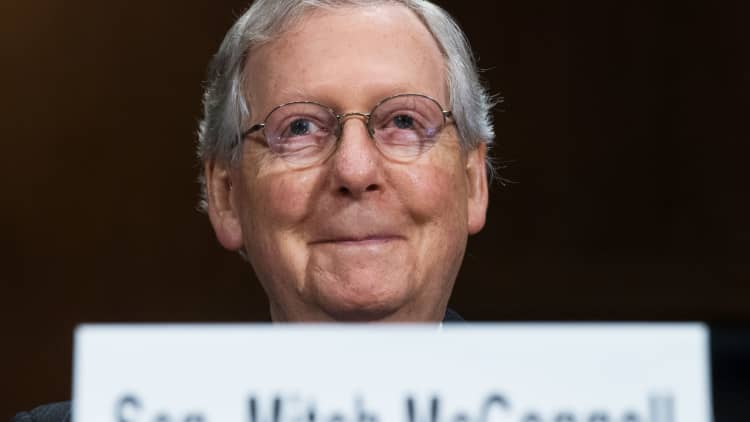
The Senate moved Wednesday to start debate on the Republican tax bill, a key step toward a vote this week to dramatically change the American tax system.
The 52-48 party line vote to proceed starts up to 20 hours of frenzied debate on the tax plan. Following that period, lawmakers will vote on a series of proposed changes.
The Senate is expected to then take a final vote on the bill by Friday. Republicans could make major changes to the proposal before the vote.
Every Republican who had expressed doubts about the bill voted to move to debate. However, it does not mean they will necessarily support a revised, final plan.
The biggest shift could be adding a "trigger" mechanism that would raise taxes if U.S. economic growth doesn't generate as much revenue as expected from the tax overhaul. The tool, designed to appease senators concerned about deficits, has sparked resistance from several GOP senators. Most of those lawmakers have suggested their opposition to the trigger will not make them vote against the bill.
Other tweaks to appease skeptical senators reportedly include increasing the tax deduction for pass-through businesses. They could also add in limited state and local tax deductions, which are entirely scrapped under the current Senate proposal.
Some GOP senators who only days ago appeared reluctant to support the bill voted to advance it. Lawmakers had expressed skepticism about issues including deficits generated by tax cuts, the bill's treatment of pass-through businesses and its effective repeal of Obamacare's individual mandate.
Republicans, with 52 seats in the Senate, can only lose two votes and still pass the plan with the simple majority required under special budget rules. That assumes all Democrats and independents, as expected, vote against the plan.
GOP Senate leaders appear confident that they have the votes to approve it
If the chamber passes its bill, lawmakers will have to reconcile their plan with separate legislation passed by the House. The chambers will have to decide on how to handle multiple key differences, including the treatment of popular state and local tax deductions.
Should both chambers pass a joint bill, it will go to President Donald Trump's desk for his signature.
Republicans hope to approve a tax plan by Christmas.


